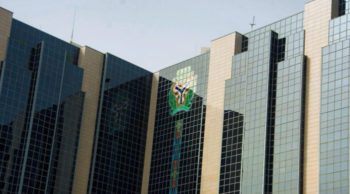
Credit default by Nigerian borrowers is a major economic risk this year after bad loans soared to their highest level in over six years as a recession weighs on consumers, the central bank said.
Africa’s biggest economy is also facing a currency crisis brought on by low oil prices, which has hammered its foreign reserves and created chronic dollar shortages, frustrating businesses and individuals.
Banking sector non-performing loans (NPL) rose to 14 percent in 2016, up from 5.3 percent a year earlier, the central bank said in a Financial Stability Report. NPLs stood at 11.7 percent in June 2016, it said.
“The deterioration in asset quality was largely attributed to the rising inflationary trend, negative GDP growth, and the depreciation of the naira,” the report said.
“Overall, credit risk remains tangible in 2017 … in servicing both naira and (foreign currency) loans.”
In 2011, the bank set a limit of 5 percent for NPLs after a state-owned “bad bank” AMCON absorbed industry loans in the wake of a sector-wide bailout following massive oil and stock market loans that turned sour.
Since 2014 tumbling oil markets have forced lenders, which have long thrived on loans to oil companies and bond investments, to adapt their business models. Some have closed branches and laid off workers to survive.
The central bank said it carried out a stress test in which it assumed that half of oil loans, which accounted for 30 percent of industry credit in 2016, turned bad. It said the effect will be for banks’ capital to fall below the regulatory minimum.
“The economic headwinds have adversely impacted bank borrowers, resulting in rising NPLs which required additional provisioning by banks, thereby reducing the banks’ capital ratio,” the central bank said, adding that mid-sized lenders were most affected.
It said top tier lenders held 88 percent of industry loans, but added that its examination “confirmed the resilience and soundness of banks in the face of daunting challenges.”
The Nigerian arm of Abu Dhabi-listed telecoms company Etisalat has been discussing with 13 local banks about renegotiating the terms of a $1.2 billion loan after missing a payment.
The bank also said persistent dollar supply constraints and demand pressure remained a key challenge in the currency market, compounded by inflationary pressures which has altered conditions necessary to attract foreign capital.
Nigeria floated the naira last year, leading to a 30 percent devaluation, only to reimpose a quasi-peg, creating multiple exchange rates. It then partially-devalued the naira for consumers but kept it firm on the interbank market.
On Wednesday the International Monetary Fund (IMF) said the naira was over-valued by around 10 to 20 percent, and called for changes to exchange rate policy.